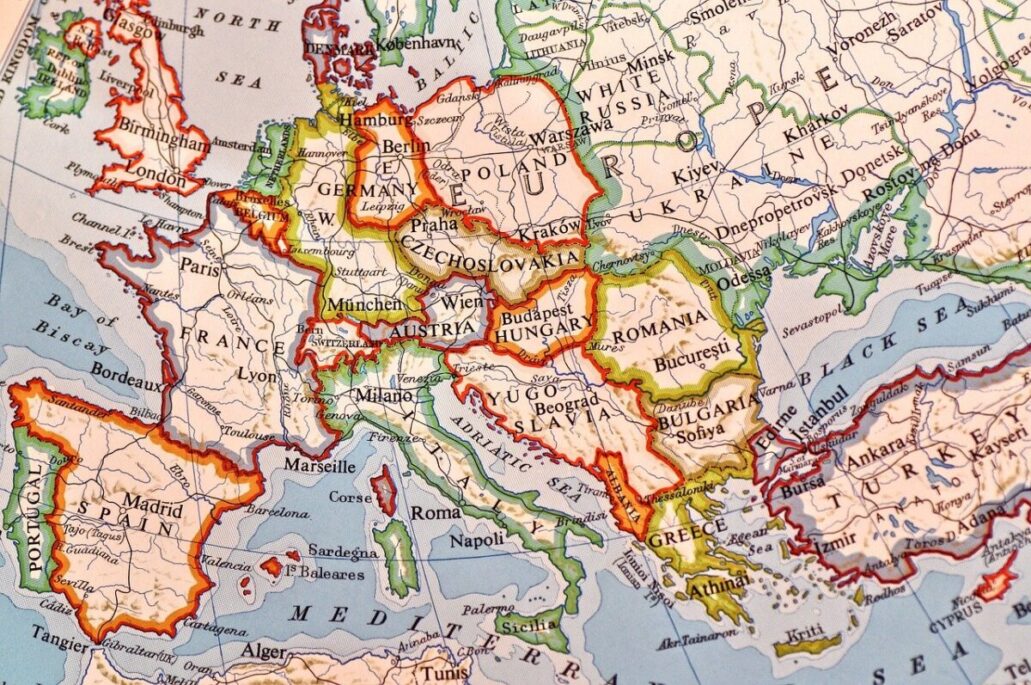Exploring the life of the Apostle Paul and the part of the New Testament that speaks of him, one often comes across the word “prisoner.” Paul often identifies with this state, and in some passages he is even proud of this state in an amicable way. He is kind of Christianly happy about it! And you think: “What a man … he is glad that he is a prisoner!”
 Freedom is a state of mind, this is the true aspiration of man. Why does Paul talk about bonds so often? At first glance, it seems like a complete contradiction to the Scriptures and teachings of the New Testament.
Freedom is a state of mind, this is the true aspiration of man. Why does Paul talk about bonds so often? At first glance, it seems like a complete contradiction to the Scriptures and teachings of the New Testament.
The Apostle Paul was indeed in bondage several times, i.e. in prison, in a cell for certain acts related to his missionary activities. Either someone didn’t like him, and they were already waiting with shackles for him to come to the new city, or someone didn’t like him when he talked about faith in the Messiah Jesus … And so it lasted practically all his life.
The Book of Acts chapters 23-25 and 28 speaks very vividly about this. It speaks of his constant imprisonment; in some prisons Paul spent up to two years! As you can imagine, this was not a very comfortable and desirable place …
The very word “bonds” literally means “chain”, “shackles”, “encumbrance”, “fetters”, “dependence” and even “slavery”.
Let’s pay attention to the bonds of the Apostle and analyze what is the essence and aspiration of his slavery, which he valued so much: “For this reason I, Paul, became a prisoner of Jesus Christ for you Gentiles” (Eph. 3: 1).
 From this passage, which by the way I really like and which I simply admire, we see that Paul became a slave of Jesus, falling into His “fetters” and becoming “burdened” for the sake of the Gospel for the Gentiles. Paul’s most important burden, his most honorable slavery, is slavery for the sake of the gospel, for Christ’s sake.
From this passage, which by the way I really like and which I simply admire, we see that Paul became a slave of Jesus, falling into His “fetters” and becoming “burdened” for the sake of the Gospel for the Gentiles. Paul’s most important burden, his most honorable slavery, is slavery for the sake of the gospel, for Christ’s sake.It was the “burden” with Christ and His Gospel that led Paul to physical trials, which he was not afraid of, but understood that, getting into them, he was honored by the Lord not only to believe, but also to suffer! Paul writes to Timothy: “Therefore, do not be ashamed of the testimony of our Lord Jesus Christ, nor of me, His prisoner; but suffer with the gospel of Christ by the power of God ”(2 Tim. 1: 8).
We live in an interesting time. When you start talking to people about the importance of being dependent on the Gospel, about preaching it, many people listen somehow incredulously, some even smile and laugh sarcastically, making fun of you: “Oh, it’s you again, Tolik, with your speech! How can you all the time call everyone to preach and evangelize! How can you, “Jews for Jesus”, talk all the time about this! “
And this is the reaction of Christians! In fact, I always have something to answer, and I easily turn a person’s sarcasm against him, but lately I often stand and listen to believers laughing at the gospel. I am simply amazed at what nonsense a person uses to excuse themselves from preaching the Gospel.
Looking at the life of Paul, we see two moments of his burden: these are physical bonds, bonds of prison, imprisonment – and bonds for the sake of Christ, for the sake of the Gospel, for the sake of people. This is already a spiritual state, and Paul’s one was inextricably linked with the other: God – the Gospel – perishing people …
Returning to Eph. 3, we see that Paul was a prisoner of Christ for the sake of the Gentiles, for the sake of the Gospel that he brought them! Again, I am amazed at the state of believers in our time: how can you be a slave of Christ, pray a lot, read the Bible – and at the same time not burn within with a desire to preach the Gospel?! That is a mystery!
 People say, “This is our calling: to pray.” And I don’t find such a special calling in the New Testament. Paul is an example example of prayer – and at this very time he sets an example for us ofevangelism. How can one feel the living God, seek Him and pray to Him – and at the same time be silent about Him, not preaching the gospel to unbelievers. Maybe someone reading this can answer me?
People say, “This is our calling: to pray.” And I don’t find such a special calling in the New Testament. Paul is an example example of prayer – and at this very time he sets an example for us ofevangelism. How can one feel the living God, seek Him and pray to Him – and at the same time be silent about Him, not preaching the gospel to unbelievers. Maybe someone reading this can answer me?
People come up with a lot of reasons: “The Holy Spirit does not lead us … There is no possibility … Now is not the time … Everyone has already heard it … People are not ready … What’s the point … God Himself will turn stone hearts of men to Himself, and so on. etc.” The real reason is that we have no real bondage and burden; we are not really slaves of the Gospel, which means that in fact we are not slaves of Christ.
For a person who was a prisoner of both Christ and the Gospel, these answers did not fit at all. He – Paul – lived and thought differently! If you are interested in these reflections, you can see the fruit of Paul’s life and bondage for Christ and the gospel!
He led people to Christ (Eph. 6:20).
He wrote letters and did a great job with them, not in his best times, but during his physical imprisonment.
He was an example to many believers (Philemon 1-23)
He knew the essence of God – and here you can find a lot of examples from Scripture …
In the end, I want to leave you to meditate on the following verse, which is also believed to have been written by the Apostle Paul: “Remember the prisoners, as if you were in bonds with them” (Heb. 13: 3)
The author says: “As if you were in bonds with them.” Who are you in bondage with? With Christ, with Paul, with the church persecuted for the Gospel in India, or in Iran or in Uzbekistan, with the community in Israel who is persecuted for open preaching …
And how tightly do you live today? How heavy is your bond for Christ and His gospel?
Author – Anatoly Emma









